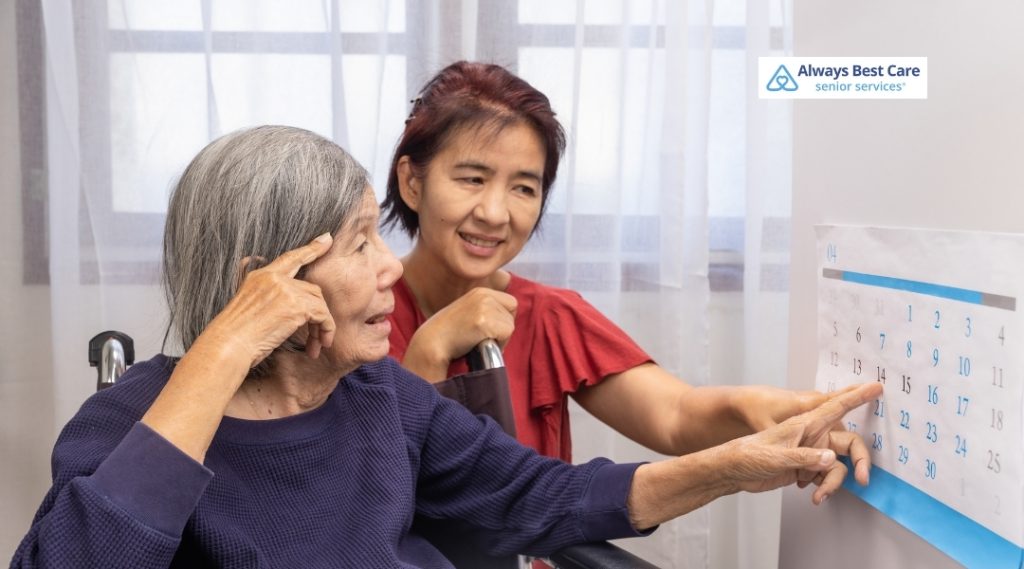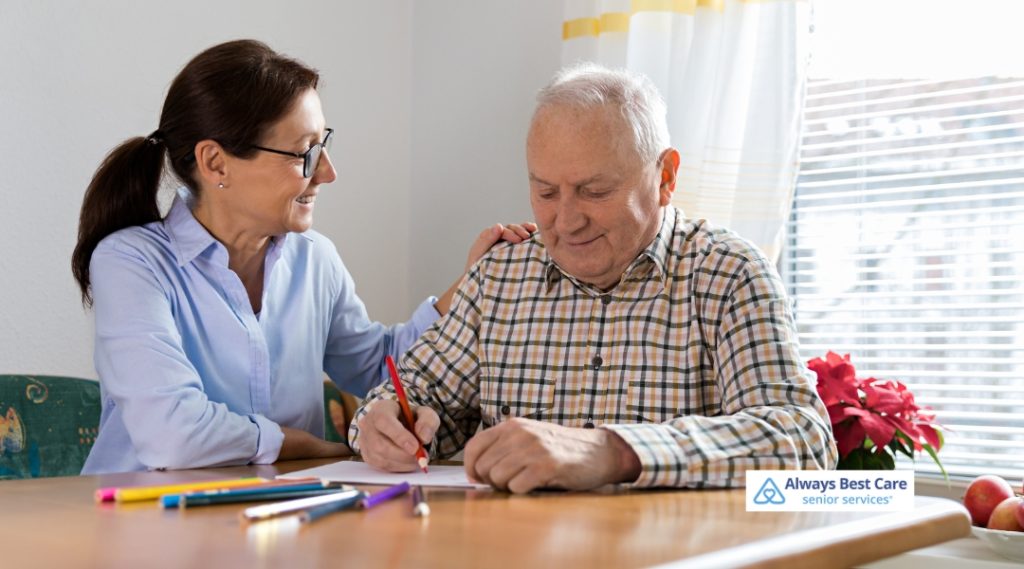Caring for Those Who Wander: Dementia Insights and Protection Tips for Mount Clemens Families

Wandering is one of the most heart-wrenching challenges faced by families caring for a loved one with dementia.
When someone you care about suddenly slips out the door without warning or purpose, it’s not just disorienting; it can put them in real danger.
At Always Best Care of Mount Clemens, we know how frightening these moments can be.
That’s why we’re here to help guide you through understanding this behavior and keeping your loved ones safe at home or in a supportive community.
What you will learn:
- The common triggers and warning signs of wandering in loved ones living with dementia.
- Practical, compassionate strategies to help keep seniors safe at home and in the community.
- How to recognize when it may be time to consider memory care support, and what resources are available for families in Mount Clemens.
Table of Contents
What Triggers Wandering? Understanding Dementia Behaviors
Nobody expects their parent or partner to get up and leave (sometimes, without shoes or even a coat) because their mind tells them they need to “go home.”
Yet, for many living with dementia in Mount Clemens, this becomes an all-too-familiar reality.
Common triggers for wandering include:
- Looking for something (or someone) they feel is missing.
- Trying to repeat past routines (like heading off to work).
- Feeling restless from boredom or anxiety.
- Being confused by surroundings that once felt familiar.
- Disorientation about time (“I need to pick up the kids”) or place (“This isn’t my house”).

Spotting Red Flags: Signs Your Loved One Might Wander
While not everyone with dementia will wander away from safety, some behaviors should set off internal alarms. Watch out for:
- Repeatedly trying doors or asking if they can go “home.”
- Talking about needing to be somewhere else (workplace, childhood house).
- Becoming agitated in crowded settings or unusually upset by changes.
- Not recognizing where they are, even if it’s been their home for decades.
- Pacing near exits or showing restlessness late at night.
Catching these signs early means you can take action before anything scary happens.
Keeping Seniors Safe: Tips from Always Best Care of Mount Clemens
Worried about what could happen if your loved one wanders? Don’t panic! Here are some tried-and-tested strategies that have helped many local families breathe easier:
1. Secure Your Space
Install simple door alarms and locks higher than eye level; out of sight often means out of mind! Motion sensors near doors work wonders, too.

2. Stick to a Routine
Predictability helps reduce stress and confusion. Plan daily activities that stimulate both body and mind; a little exercise goes a long way toward curbing restlessness.
3. Limit Overstimulation
A noisy environment might trigger agitation and, ultimately, wandering. Try keeping things calm and familiar around the house whenever possible.
4. Meet Emotional Needs
Loneliness breeds boredom, which may prompt people to seek companionship outside. Spend time together doing puzzles, gardening on nice days, sharing music, or just chatting over tea.
5. Visual Cues and Labels
Place clear labels on rooms (think pictures plus words) so your loved one feels less lost indoors.
6. Loop In the Neighbors
Don’t be shy; let trusted neighbors know what’s going on so they’ll call you first if they spot your family member walking alone nearby.

Is It Time for Memory Support?
Sometimes, no matter how hard we try at home, keeping someone truly safe just isn’t realistic anymore, and that doesn’t mean you’ve failed them! Memory care communities like those supported by Always Best Care offer:
- Around-the-clock supervision from trained caregivers.
- Secure entryways and exits designed specifically to prevent wandering accidents.
- Daily programs crafted around residents’ abilities so everyone stays active, not anxious!
- Personalized plans built around unique needs, for both cognitive support and dignity.
FAQ about Dementia & Wandering Safety
Q: Why does my loved one keep wanting to go “home” when they’re already there?
A: That sense comes from confusion due to memory loss. Their brain may picture another time entirely!
Q: What should I do immediately if my loved one wanders away?
A: Call local authorities ASAP; provide recent photos and medical info, and reach out quickly within your neighborhood network, too!
Q: Can technology help prevent dangerous situations?
A: Absolutely! GPS trackers worn as bracelets and shoes give peace of mind alerts while still respecting privacy when possible.
Q: Is moving into memory care giving up hope?
A: Not at all. It simply means choosing an environment where safety never comes second best!

Discover Essential Dementia Care Strategies for Mount Clemens Families
Watching someone you love struggle with wandering hurts, but remember there’s always hope (and help!).
At Always Best Care of Mount Clemens, we stand beside families facing these challenges every day, offering compassionate advice and hands-on solutions tailored specifically to meet the needs of our community.
Contact Always Best Care of Mount Clemens at (586) 690-7500 to learn more and schedule your free consultation.





